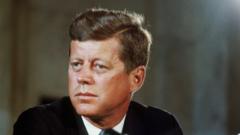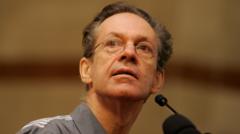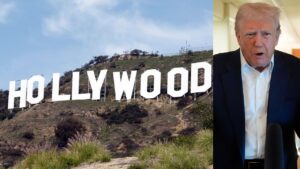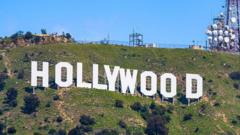The latest release of JFK assassination documents sheds light on CIA operations and surveillance of Lee Harvey Oswald, but fails to provide definitive answers, fueling ongoing speculation and conspiracy theories surrounding the 1963 killing.
Newly Released JFK Files Spark Interest but Raise More Questions

Newly Released JFK Files Spark Interest but Raise More Questions
Recent documents about the assassination of John F. Kennedy see increased scrutiny, revealing CIA surveillance on Oswald and the complexities of intelligence operations.
Newly released documents pertaining to the investigation into President John F. Kennedy’s assassination have recently caught the attention of enthusiasts and experts alike, though they still leave significant questions unanswered regarding this pivotal moment in American history. Following the Trump administration's release of the files, many of which are now fully or mostly unredacted, analysis has turned toward what the revelations may mean for our understanding of JFK’s assassination in Dallas in 1963.
While the conclusion from a 1960s government investigation remains that Lee Harvey Oswald, a former U.S. Marine who defected to the Soviet Union, acted alone, the documents reveal substantial detail regarding the extent of the CIA's monitoring of Oswald prior to the shooting. According to Jefferson Morley, a former Washington Post journalist, the CIA had a calculated interest in Oswald well before the assassination, and this has become increasingly clear over the years. Although many documents have been seen before, more comprehensive versions are now accessible, yet they have not produced any groundbreaking new insights, leading Morley to call this the most exciting development regarding JFK records in decades.
Experts are praising the release, citing improvements in transparency when compared to past disclosures, which often featured heavy redactions. Philip Shenon, who authored a book on the assassination, pointed out that prior records indicated Oswald's trip to Mexico City in September 1963 was carefully watched by the CIA, revealing indications that he may have mentioned plans to assassinate Kennedy during this time.
Furthermore, the new documents illuminate Kennedy's interactions with the CIA and delve into intelligence-gathering techniques from the Cold War era. One notable memo from Kennedy aide Arthur Schlesinger critiques the CIA's influence on U.S. foreign policy, revealing tensions between the agency and the presidency. Other documents described methods used to hide surveillance measures, yet experts recognize that the intel operations highlighted are largely historical, rather than shedding light on the assassination itself.
Interestingly, certain conspiracy theories have resurfaced with this latest batch of documents, including claims from a historical military intelligence agent about CIA involvement in the assassination—a narrative that has circulated for years in various forms. However, much of the recent discourse surrounding these theories has been built upon previously available information.
Despite the considerable release of documents, questions of whether all relevant files have been unredacted linger. While President Trump indicated that redactions would be minimized, many documents still contain some classified elements. Experts concur that although progress has been made in transparency, there are still many files tied up within the CIA and FBI, waiting to be disclosed.
As speculation and debate continue unabated around JFK's assassination, the release of these files has contributed to an ongoing dialogue about the events of 1963, reinforcing the idea that assassinations often stir both inquiry and conspiracy theories that may persist long into the future.






















